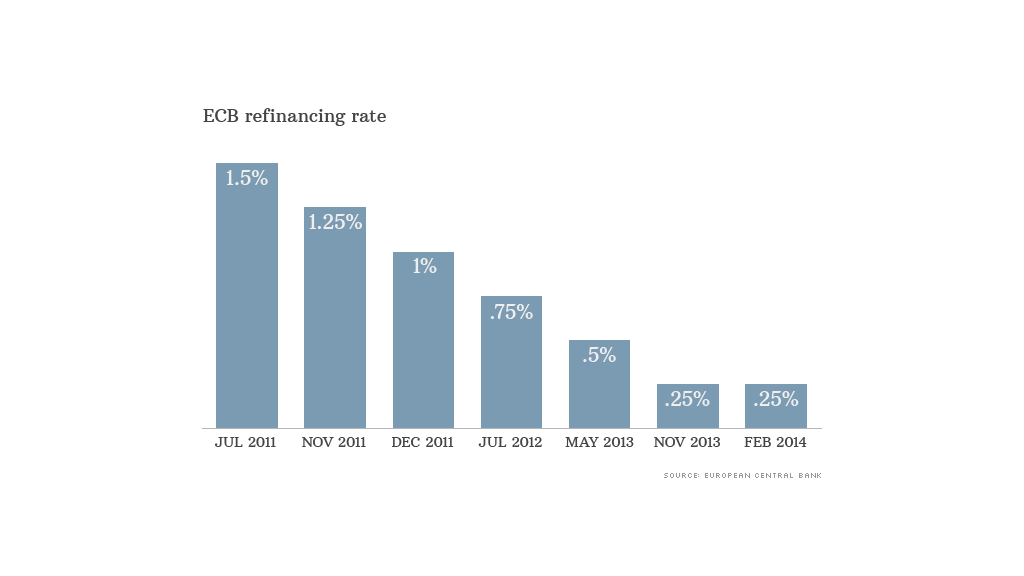
The European Central Bank kept interest rates on hold Thursday but said it was watching global market turmoil closely and was ready to act if prices weaken further.
The bank held its main rate at a record low of 0.25% for a third month running. President Mario Draghi said the bank needed more time to understand why inflation fell again in January, and to assess the impact of emerging market turmoil on the European economy.
"The reason for today's decision not to act has to do with the complexity of the situation ... and the need to acquire more information," Draghi said at a news conference.
Economists were divided over whether the ECB would cut rates, with some arguing the bank was more likely to wait for updated growth and inflation forecasts in March.
"If ECB staff come to the conclusion that inflation will stay significantly below target well into 2016, the ECB could go further and cut rates [in March]," said Berenberg economist Christian Schulz.
Pressure has been building for the central bank to take action again to stimulate activity.
Inflation is slowing in the eurozone, raising the threat of a slide into deflation for an economy that is barely growing and still not generating jobs fast enough to bring down unemployment.
Consumer price inflation is less than half the central bank's target. A slide into deflation could depress economic activity still further as spending is postponed in anticipation of lower prices. It would also raise the real value of the debt already weighing down on many eurozone countries.
"Is there deflation? The answer is no," Draghi said. "But a prolonged period of low inflation is a risk in itself and it warrants close attention by the ECB."
Related: IMF warns of deflation risk
The chances of a growth shock have also increased. Recent data from the U.S. and Europe has been mixed at best. This week saw a weak manufacturing number in the U.S., and eurozone retail sales fell in December.
Emerging markets have been shaken by hints of a slowdown in China, a reduced flow of cheap money from the Federal Reserve, and political unrest. Some have been forced to jack up interest rates to defend their currencies and tackle inflation, moves that could choke off growth and hit Europe's export-led recovery.
"So far, the eurozone economy and financial markets have shown a good deal of resilience to these developments," Draghi said.
Related: Investors dump emerging market stocks
Investors' appetite for risk has also taken a beating, as reflected in the flight of cash from the more fragile emerging economies and global stock markets.
The turbulence has been seen in overnight interbank interest rates, raising fears that Europe's banks may become even more cautious about lending to firms and households, particularly in weaker eurozone states.
Earlier on Thursday, the Bank of England left interest rates unchanged, as expected.
U.K. growth is accelerating, and unemployment falling, but Governor Mark Carney said last month he saw no need to raise rates because the economy was some way from achieving "escape velocity."


